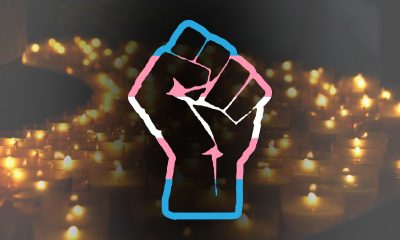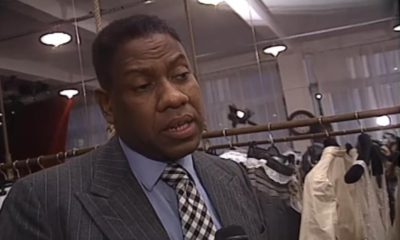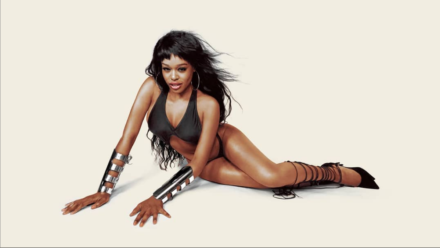Arts & Entertainment
Vogue faces backlash for ‘gender fluid’ story on Gigi Hadid and Zayn Malik
Twitter fired back at the fashion mag’s label
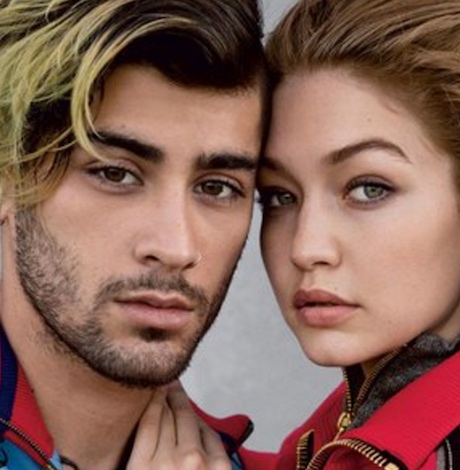
.@GigiHadid and @zaynmalik are throwing the ideas of “womenswear” and “menswear” out the window. https://t.co/4Ac6RDhJNA
— Vogue Magazine (@voguemagazine) July 14, 2017
Vogue is under fire from critics who took offense that the fashion magazine has declared Gigi Hadid and Zayn Malik “gender fluid” for sharing each other’s clothes.
In the couple’s joint cover story, Hadid and Malik share that they are flexible when it comes to fashion and have no problem dipping into the other’s closet.
“‘I shop in your closet all the time, don’t I?’ Hadid, 22, flicks a lock of dyed-green hair out of her boyfriend’s eyes as she poses the question ‘Yeah, but same,’ replies Malik, 24. ‘What was that T-shirt I borrowed the other day?’ ‘The Anna Sui?’ asks Hadid. ‘Yeah,’ Malik says. ‘I like that shirt. And if it’s tight on me, so what? It doesn’t matter if it was made for a girl.’ Hadid nods vigorously. ‘Totally. It’s not about gender. It’s about, like, shapes. And what feels good on you that day. And anyway, it’s fun to experiment. . . .'” the article reads.
Twitter had a field day saying it was a reach for Vogue to declare the couple “gender fluid.”
Hi unless I’m missing something these celebs aren’t gender fluid they’re just sharing clothes? https://t.co/S5OJ1IOKli
— Eliel Cruz-Lopez (@elielcruz) July 13, 2017
straight cis couple shares clothes, Vogue declares them gender fluid. Teen Vogue is gonna have to clean this one up for Mama Vogue. pic.twitter.com/0VdVKadBbq
— Molly Priddy (@mollypriddy) July 13, 2017
yes hello police, Gigi Hadid wore pants last week and now vogue is calling her a gender fluid icon pic.twitter.com/HnSZjr2JgS
— Max Lakin (@maxlakin) July 13, 2017
Gigi: *wears gucci men’s suit*
Vogue: “?gigi hadid, queen of gender fluidity?”— Sex and The City Hoe (@hautevogues) July 13, 2017
I know right! And all Z & G say is that they borrow each other’s clothes. Such a big jump for the mag to declare gender fluidity
— Colette Fahy (@colettefahy_) July 13, 2017
Poet Tyler Ford, who is quoted in the article, noted that the story overlooked how gender fluid relates to the LGBT community except for Ford’s quote.
the only mention of the word "trans" in this article on "gender fluidity" is by me via interview. ? https://t.co/27wSCkVXJ4
— Tyler Ford (@tywrent) July 13, 2017
Books
‘Pronoun Trouble’ reminds us that punctuation matters
‘They’ has been a shape-shifter for more than 700 years

‘Pronoun Trouble’
By John McWhorter
c.2025, Avery
$28/240 pages
Punctuation matters.
It’s tempting to skip a period at the end of a sentence Tempting to overuse exclamation points!!! very tempting to MeSs with capital letters. Dont use apostrophes. Ask a question and ignore the proper punctuation commas or question marks because seriously who cares. So guess what? Someone does, punctuation really matters, and as you’ll see in “Pronoun Trouble” by John McWhorter, so do other parts of our language.

Conversation is an odd thing. It’s spontaneous, it ebbs and flows, and it’s often inferred. Take, for instance, if you talk about him. Chances are, everyone in the conversation knows who him is. Or he. That guy there.
That’s the handy part about pronouns. Says McWhorter, pronouns “function as shorthand” for whomever we’re discussing or referring to. They’re “part of our hardwiring,” they’re found in all languages, and they’ve been around for centuries.
And, yes, pronouns are fluid.
For example, there’s the first-person pronoun, I as in me and there we go again. The singular I solely affects what comes afterward. You say “he-she IS,” and “they-you ARE” but I am. From “Black English,” I has also morphed into the perfectly acceptable Ima, shorthand for “I am going to.” Mind blown.
If you love Shakespeare, you may’ve noticed that he uses both thou and you in his plays. The former was once left to commoners and lower classes, while the latter was for people of high status or less formal situations. From you, we get y’all, yeet, ya, you-uns, and yinz. We also get “you guys,” which may have nothing to do with guys.
We and us are warmer in tone because of the inclusion implied. She is often casually used to imply cars, boats, and – warmly or not – gay men, in certain settings. It “lacks personhood,” and to use it in reference to a human is “barbarity.”
And yes, though it can sometimes be confusing to modern speakers, the singular word “they” has been a “shape-shifter” for more than 700 years.
Your high school English teacher would be proud of you, if you pick up “Pronoun Trouble.” Sadly, though, you might need her again to make sense of big parts of this book: What you’ll find here is a delightful romp through language, but it’s also very erudite.
Author John McWhorter invites readers along to conjugate verbs, and doing so will take you back to ancient literature, on a fascinating journey that’s perfect for word nerds and anyone who loves language. You’ll likely find a bit of controversy here or there on various entries, but you’ll also find humor and pop culture, an explanation for why zie never took off, and assurance that the whole flap over strictly-gendered pronouns is nothing but overblown protestation. Readers who have opinions will like that.
Still, if you just want the pronoun you want, a little between-the-lines looking is necessary here, so beware. “Pronoun Trouble” is perfect for linguists, writers, and those who love to play with words but for most readers, it’s a different kind of book, period.
The Blade may receive commissions from qualifying purchases made via this post.
Theater
‘The Broadway Cage Match’ ready to rumble at WeHo’s Musical Mondays
This mainstay of MUMO returns to The Abbey on Monday, celebrating the group’s 16th anniversary
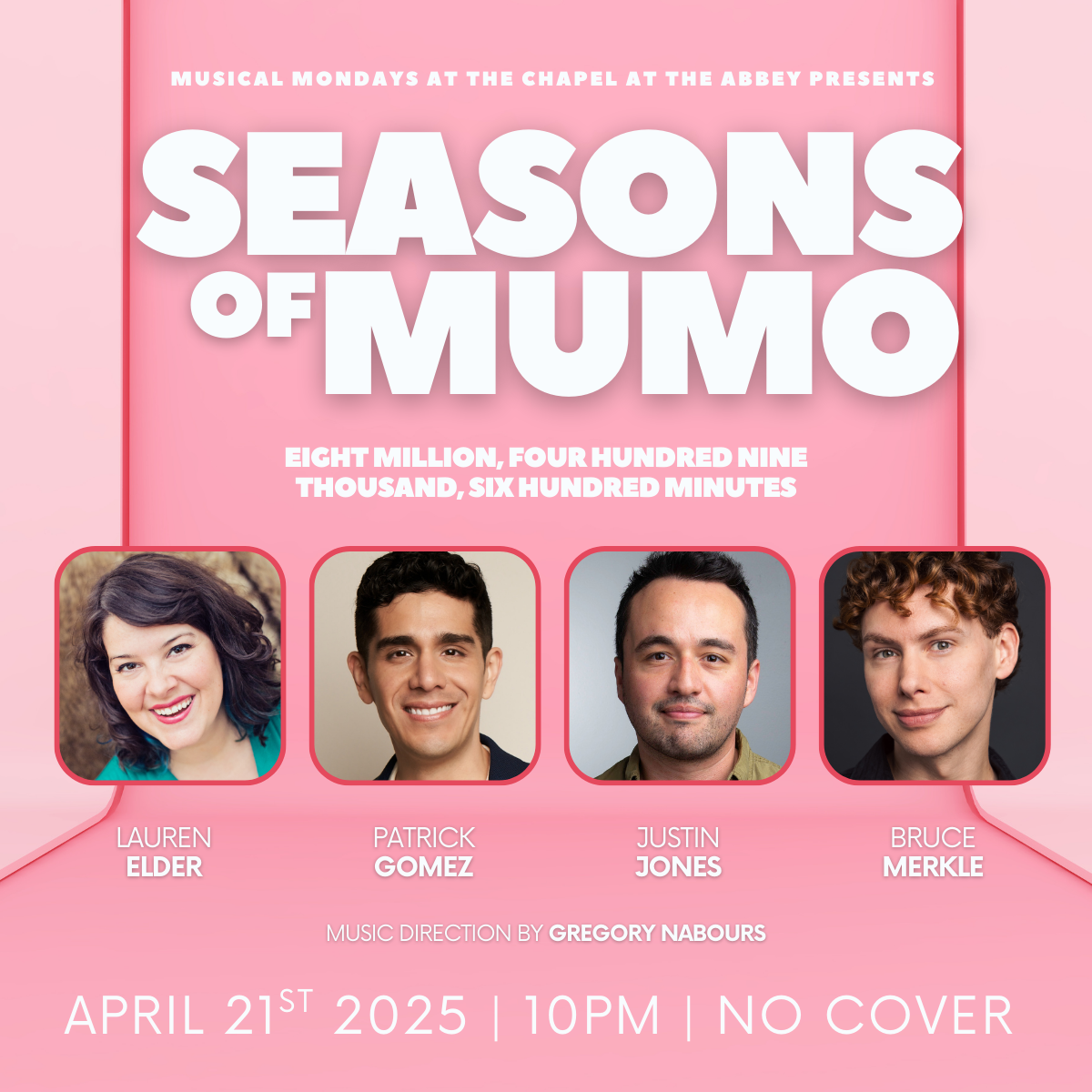
This coming Monday, Musical Mondays (MuMo) at The Abbey will be celebrating its big 16 year anniversary and will be honored by the City of West Hollywood, with infamous “The Broadway Cage Match” taking part of the celebration.
Cue up the music, “The Broadway Cage Match” is part improv, part sing-off and all fun. The entire affair is nothing short of spectacular because the singers are as impressive, as they are hilarious.
This popular MuMo institution was created by musical theatre guys Bruce Merkle and Justin Jones. These boys are as talented behind the scenes as they are on stage. This popular segment has become a much loved mainstay of this popular night.
Merkle originated the role of Olaf in “Frozen: Live,” at the Hyperion, directed by Liesl Tommy. He has also appeared on television in “Night Court,” “How I Met Your Mother,” “Rules of Engagement,” “The Goldbergs, RuPaul’s AJ & the Queen,” “Conan,” and had recurring appearances on “Victorious” and “The Tonight Show.”
He is a “Sunday Company” alumni at The Groundlings, where he periodically performs improv and sketch comedy. He is also a world renowned yogi, ranked 4th in the world and Michael Fassbender’s yoga double in David Fincher’s “The Killer.”

Bruce Merkle
Justin Jones made his Broadway debut in “Home for the Holidays” at the August Wilson Theatre and has appeared on Netflix’s “Sugar Rush,” “Tosh.0,” Lionsgate’s “The Newest Pledge,” and the Lifetime movie-musical “Christmas Harmony,” which he co-wrote with Nanea Miyata.
As a graduate of Circle in the Square Theatre School, he starred regionally with companies like Reprise Theatre Co., Casa Mañana and 3D Theatricals, co-created the “The Broadway Cage Match” for Rockwell Table and Stage and performed at venues including Birdland, Rockwell, Radio City Music Hall and more.
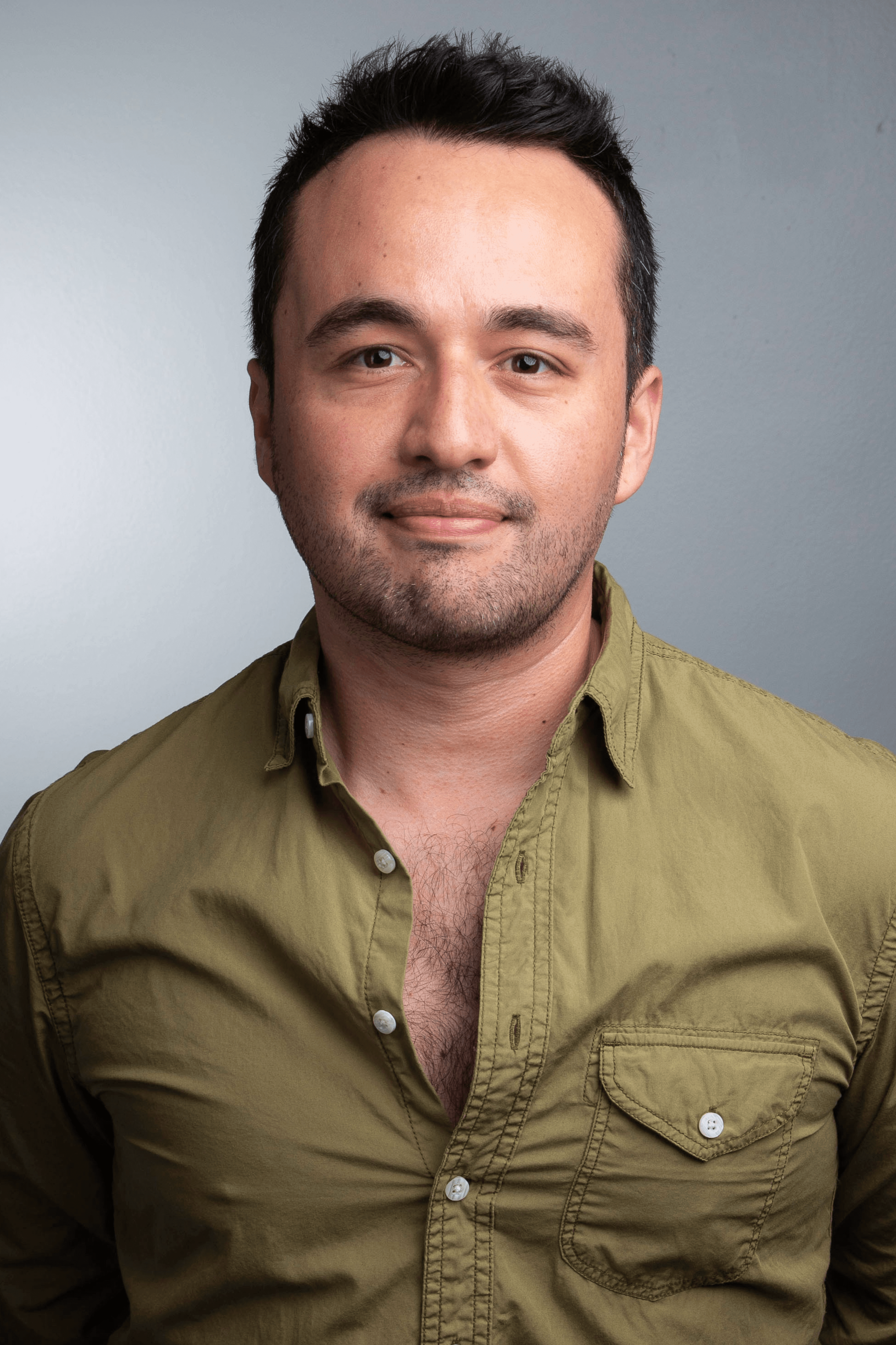
Justin Jones
We caught up with these two masterminds while they are gearing up for Monday’s big show.
What the heck is the Broadway Cage Match? Sounds dangerous!
JUSTIN: The Broadway Cage Match is a triple-threatening battle for showbiz glory. We started it in 2014 to showcase so-called ‘rival’ theater companies battling to see who was the best of the best. It was all about bringing your inner show queen, your inner diva, your inner poorly-adjusted showbiz kid to the stage.
We had people skrelt, belt and play fun improvisational showbiz games that commented on the absurdity of what it’s like to work in musical theater. It was all in good fun — a total celebration of the chaos and creativity of this art form. We got to work with amazing talent who brought their insanity and genius to the stage at Rockwell.
As Kate Pazakis, our producer, once put it: “It’s controlled chaos.” And that’s exactly what made it great.
BRUCE: We would have two musical that we’re playing at the same time and three people from each show would sing and compete in musical theatre inspired improv challenges. The audience voted on who went through and one show was victorious. The shows were so loud and fun. We always wrote special material and made sure each show was bespoke and tailored to the two musicals being featured.
What do you love about the local musical theatre scene?
BRUCE: I love how many theaters we have. So many people think this is just a film and TV town. And while that’s true, I bet there are three or so musicals playing at any given time. The talent is great too and the productions are on par with New York. The only thing we have that New York doesn’t have is leg room.
JUSTIN: I love how vibrant and generous the L.A. musical theater scene is. People are doing it for the love of the work.
I did my first show here in 2010 at Cabrillo Music Theatre with Sally Struthers and I got lucky — those performers became dear friends. Since then, I’ve worked with Reprise Theatre Co, 3D Theatricals and Musical Theatre Guild. I’ve gotten to collaborate with incredible, talented artists who show up with heart and soul.
There’s so much talent here — Broadway expats, TV and film actors, brilliant hobbyists. LA is an “ yes and” city, not an “or.” It’s a yes-and community. People support each other and build amazing work from nothing. From the big houses like the Ahmanson, Mark Taper, and the Geffen, to intimate 99-seat theaters—everyone’s in it to tell stories that matter.
And with so much diversity in this city, new voices are coming through. Musicals are being reworked and reimagined here. That’s what makes it exciting: we’re not just doing theater—we’re shaping what it can become.
What was your first exposure to Musical Mondays?
BRUCE: Ishka came to see me and Justin host The Broadway Cage Match and had such nice things to say. She asked us if we would be interested in hosting Musical Mondays and that’s the first time I heard of it. My mouth was agape the first time I walked in for rehearsal and the Fans of MuMo were performing before our set.
JUSTIN: When I moved to LA in 2010, it was my mission to get involved in the musical theater scene. I’d heard of Ryan O’Connor and that he hosted Musical Mondays at a place called Eleven in West Hollywood. Ryan and I both went to Circle in the Square Theatre School—just at different times.
So I went by myself to check it out and meet him. That’s where I first met Ryan and Scott Nevins. They were hosting, and the energy in the room was electric. The talent, the joy, the community—it was exactly the kind of intimate, musical theater-loving space I had missed after moving from New York. I knew immediately: I wanted to sing at Musical Mondays. That became a goal for me. I finally did eventually, on a night that the amazing Daisy Egan hosted!
Why is a night like Musical Mondays so important to the community right now?
JUSTIN: Community is essential—period. Everyone deserves a safe space to show up fully as themselves. And Musical Mondays is exactly that, especially for fans of musical theater. It’s an art form that blends so many identities, backgrounds, and stories. It’s a melting pot of human experience — and so are the people who love it.
Even if you don’t think you like musicals, it’s hard to come to MuMo and not be swept up by the joy of the Fans of MuMo or the power of the live performances. Every week, you can show up, relax, sip a drink, sit in silence, or scream-sing with friends. And you’re surrounded by queer people and allies doing the same.
In a time where so many people feel disconnected or overwhelmed, Musical Mondays is a place to let your hair down, be silly, celebrate love and feel something real. That’s what makes it matter.
What is a favorite Musical Mondays memory?
BRUCE: Justin somehow found some leprechauns to back me up when I sang “It’s A Great Day For The Irish” on St. Patricks Day and also magically produced bells for the entire audience when I sang ‘I Can Hear the Bells’ from “Hairspray.”
One time my mom was in town and she came to see the show. It was the Monday before Thanksgiving and Ishka gave her a piece of pumpkin pie. It was so sweet and Ishka asks about my mom every time I see her.
How did you two meet?
BRUCE: We had the same agent and we’re both auditioning for musicals around town. I remember seeing Justin in the waiting rooms a lot. We finally worked together in a cabaret show and started talking. Justin was always eager to put something together and pitched me the idea of working together on an extravagant cabaret-style show. We eventually wrote “The Broadway Cage Match” for “Rockwell Table & Stage” and now he won’t stop annoying me.
What do you love most about working with the other?
BRUCE: Justin’s innovative mind never turns off. He is always trying to make things sharper and better. It’s really fun to problem solve with him because we both have completely different skills and they go well together like The Yin and Yang [symbol.] He is also game for any idea I pitch and will help us find the best way to execute it.
What was that one musical that inspired you to become a musical theatre devotee?
BRUCE: Watching Mary Martin in “Peter Pan.” I didn’t know what magic was happening, but I knew I had to do whatever Mary was doing.
JUSTIN: For my family, the musical was “Into the Woods,” and our composer was Stephen Sondheim.
I fell in love with that show early — and over time, I’ve had the experiences of many of its characters. These characters stay with you. My family used to watch the VHS recording on road trips and it became something deeply personal we all shared.
Now that I am older I have gained a profound understanding of “Company,” “Sunday in the Park with George” — basically, my journey has been falling deeper in love with Sondheim over time. His work is personal, complicated, honest. It changes you.
Gender swapping is a new trend in musicals — what starring role would you cast yourself in if swapping?
BRUCE: Oh gosh. I usually sing female songs for Musical Mondays so the list is long. I’d love to play Fanny Brice in “Funny Girl.” I think I’ve must’ve sang all of [Brice’s] songs by now at Musical Mondays.
JUSTIN: We’re in such a special moment where storytelling is expanding — diversity in casting is opening up opportunities for people to tell their versions of stories, not just repeat what came before.
But for me? I’d play the Baker’s Wife. That character taught me so much. I sing her material in at MuMo sometimes — specially “Moment in the Woods”. There’s just something about her journey that feels really meaningful to me.
What are the three quintessential musicals everyone should love?
BRUCE: Of course, this answer will change depending on when you ask me again. I think “Into the Woods ” is brilliant, like millions of other people. I love zooming in on the gray area of life, which that show does beautifully. The Color Purple” destroys me every time I see it, so I hope people can get a tiny bit of what I get out of it. Finally, “Chicago.” It’s so fun and always makes me happy I haven’t committed murder yet.
JUSTIN: It’s hard to say everyone should love any show—musicals are so personal. But I’ll tell you a few that have changed me:
“Sunday in the Park with George” – as an adult, this one hits deep. “Finishing the Hat” is devastating when you’re trying to balance making art, finding love, and being understood. It’s for anyone building something new and feeling invisible while doing it.
“The 25th Annual Putnam County Spelling Bee” – William Finn just passed away, and this show is a tribute to his quirky, beautiful storytelling. I worked on it while training at Circle in the Square and got to see the original cast many times. It’s hilarious, touching, and full of heart. And honestly? I’d love to play Marcy Park.
“West Side Story” – A Bernstein score, Sondheim lyrics and lessons that still matter. It’s lush. It’s classic. It’s powerful.
What is your message to MuMo fans?
BRUCE: Keep coming! Bring your friends. Bring your enemies. Get your dose of theatre and go support the singers around town if they’re performing in something.
JUSTIN: You belong here.
Every Monday, this is your safe space to be fully yourself. Whether you love musicals or not, just being around people who celebrate art with love and joy — that’s magic.
The fans of MuMo are like our own vaudevillian Muppet troupe, bringing their whole selves to the party. The live performers? Broadway pros, regional stars, people with real chops — they bring it all to this stage just for the joy of sharing it.
It’s powerful to be in a queer space where you can laugh, sing, cry, and just be. That’s what Musical Mondays is. Broadway in your backyard.
Thank you for coming every week. You make this moment matter.
Movies
Heartfelt ‘Wedding Banquet’ remake a romcom worth seeing
Mishaps, crossed wires, conflicts are all part of the fun

Creating a worthy remake can be a tricky proposition, especially when the movie being remade is a beloved classic – but that doesn’t mean it’s an impossible one.
Consider Andrew Ahn’s new version of 1993’s “The Wedding Banquet,” a film that put future “Brokeback Mountain” director Ang Lee on the proverbial map in America, which opens in theaters this weekend after a debut at Sundance earlier this year. The original, an American/Taiwanese production which became a surprise hit in the U.S., broke ground with its story — a culture-clash comedy of manners about a queer romantic triangle attempting to stage a sham wedding, it was quickly embraced by LGBTQ audiences thrilled to see representation on the big screen and positive representation, at that, in an era when it was even scarcer than it is today. To undertake a remake of such a film is a bold move, to say the least.
Yet gay Korean American writer/director Ahn (“Spa Night,” “Fire Island”) – has built his blossoming career on films about queer relationships among Asian American characters, with as much (or more) emphasis on family, both biological and chosen, as on romantic partnership; It seems natural, perhaps, for him to reinterpret this influential classic through his own lens, and he’s already proven himself as a filmmaker whose strengths line up perfectly with the material.
Even so, Ahn hedges his bets, perhaps, by collaborating on the new screenplay with James Schamus, who also co-wrote the original (along with Lee and Neil Peng), and the result is a movie that – although it recrafts the original romcom for a newer age and reconfigures its central relationships a bit to “up the ante” on its complications – stays relatively faithful to the broad strokes of its plot.
In this iteration, the New York setting is transposed to Seattle, and the plot revolves around not just one queer romance, but two: Chris and Min (Bowen Yang and Han Gi-Chan), a stalled grad student and his South Korean boyfriend, and their lesbian friends-and-landladies Lee and Angela (Lily Gladstone and Kelly Marie Tran), who are struggling to become parents through expensive IVF treatments. Min, an artist whose temporary visa is about to expire, wants to stay with Chris and build a life in America, but his grandmother (Youn Yuh-jung) – currently running the vast family business empire to which he is heir – wants him to come home and claim his place in the organization. A wedding to Chris would secure him the green card he needs to defy his grandmother’s demands, but it would also mean outing himself as gay and potentially being cut off from his inheritance. As a solution, he offers to pay for Lee and Angela’s fertilization procedure in exchange for a “green card wedding” with the latter, ensuring that he can remain in the U.S. while also remaining in the closet to his family.
Of course it’s an idea as bad as it sounds, but despite some reticence, the couples agree to the plan; but when grandmother decides to come to America and meet the bride in person, the four of them must attempt to pull off a masquerade that escalates far beyond their expectations after she insists on putting on a traditional – and elaborate – Korean wedding worthy of her grandson’s exalted status, all while wrestling with the ambivalence and doubts that begin to encroach on their relationships as the scheme begins to fray at the edges.
Those who’ve seen the original already know that things don’t play out exactly as planned – and anyone who hasn’t won’t be surprised when it doesn’t, anyway. We already told you it was a bad idea.
That, of course, is the charm of the romcom, a genre in which mishaps, crossed wires and conflicts are all part of the fun, and in any case it gives Ahn’s film the opportunity to explore – as Lee did with the original – the more serious and relatable challenges of reconciling our queerness with the deeply ingrained traditions of our cultural background; he does so with gentle wit and an equal measure of respect, but he’s not above getting laughs by pointing up the sheer absurdity that sometimes goes along with the process. Neither does he hesitate to delve into the messiness of queer relationships, even (and perhaps especially) with lifelong friends, or the deep insecurities and self-criticisms which get in the way of sorting them out.
To these ends, “Wedding Banquet” relies heavily on its cast, who embrace and clearly relish the chance to flesh out these characters. Yang brings his inevitable “SNL” star power to the table but downplays the wackiness in favor of a more nuanced tone, and Gi-Chan shines as his pragmatically idealistic partner; Gladstone’s intelligence and authenticity is a grounding force, while Tran counterpoints her with an eminently likable turn as her spunky-but-anxious misfit of a girlfriend – and the resonance they each bring to the prospect of motherhood highlights the longing for family and legacy that so many queer couples carry as they build their lives together.
It’s not all about the couples, though. Veteran Chinese American actress Joan Chen (“Tai Pan,” “Twin Peaks”) is a scene stealer as Angela’s hyper-supportive mom, whose participation in her daughter’s “lavender wedding” requires her to go against her deepest instincts as a proud ally, and Bobo Le provides a further connection to the theme of family with a charming performance as Yang’s tomboy-ish little sister. The anchoring performance, however, comes from acclaimed Korean star Yuh-jong, whose shrewd, savvy, and staunch portrayal of Gi-Chan’s power player grandma adds a much-needed dose of level-headed wisdom into the midst of the whirlwind.
In the end, Ahn’s update of Lee’s classic comedy scores big points for honoring the original’s message of acceptance and embracing the notion of reimagining our ideas of traditional family structures to meet the needs of an ever-changing world; it also succeeds in maintaining a heartfelt sense of empathy for each of its characters, all of whom appeal to us precisely because of their imperfections and their hangups. None of them are perfect, but all of them are perfectly human, which goes a long way toward making Ahn’s remake feel like more than just the slickly-made feel-good romcom it resembles.
And yet, given the screwball potential and the endless possibilities for farcical developments in the convoluted deception attempted by its sets of lovers, Ahn’s “Wedding Banquet” could have been funnier. Leaning into an idealized and sentimental perspective as it gracefully brings its characters’ lives into place, it occasionally feels a bit “precious,” too “Hollywood” to be believed.
Again, however, this is part of the charm of the romcom: if generations of straight audiences have gotten the chance to buy into idealized big screen fantasies about life and love, then why shouldn’t we enjoy the same privilege?
With that in mind, “The Wedding Banquet” makes for a perfect opportunity to entertain and validate ourselves – and even if it doesn’t tickle your funny bone, it’s a generous enough feast for your queer soul that it deserves you to see it.
Just make sure you bring somebody special to share your popcorn with.
Arts & Entertainment
A Night of legacy, love, and liberation: Inside the 2025 April Fool’s Ball
Ballroom culture continues to thrive among Black and Latin American queer culture

Late last month, the West Coast Ballroom Community lit up Los Angeles for one of the most anticipated events of the year — the April Fool’s Ball — produced by Legendary Father Markus Tisci. Now a staple of the L.A Ballroom calendar, the annual event is known not only for its high-caliber talent and unforgettable battles but for the legacy, love and chosen family it uplifts.
But let’s be clear: when we talk about “Ballroom,” we’re not talking about waltzing under chandeliers, we’re talking about the underground queer subculture birthed from the genius and resistance of Black and Latin American queer people — especially trans women and drag queens — in New York City.
Ballroom has since shaped and influenced mainstream culture, as seen in moments like Madonna’s “Vogue,” Beyoncé’s “Renaissance” and shows like “Pose” and “Legendary.” Today, that legacy continues to evolve and flourish far beyond New York, thriving in cities across the West Coast and beyond.
Markus Tisci has been a part of that movement for over 18 years and his roots trace back to the House of Rodeo — one of the West Coast’s most iconic original houses. In 2018, he founded the April Fool’s Ball with a simple but powerful goal: to bring laughter and creativity back into a space that was becoming, ‘a bit too serious.’ Conceived, produced and largely self-funded by Tisci, the ball is still known for its playful, pop culture — inspired categories that encourage imagination and joy.
Highlight the reel from the night of the House of Gorgeous Gucci.
This year’s April Fool’s Ball was filled with emotion, celebration, and remembrance. Just a few days earlier, the community laid Icon Devine to rest. The passing of the Queen of the West Coast Ballroom Scene and Legendary Mother of the West Coast Chapter of the House of Gorgeous Gucci left a deep void. For Ballroom Icon Jack Mizrahi, one of the night’s emcees and a foundational figure in Ballroom culture — as well as the father and founder of the House of Gorgeous Gucci — the event became a moment of both grief and healing.
“Seeing my house assembled, having each other to lean on, and the love we got from the whole West Coast Ballroom scene — it meant everything,” he shared.
In a powerful moment during the Legends, Statements and Stars (LSS) call — a time at the beginning of every ball when individuals are recognized and honored for their influence and impact — Mizrahi invited all trans women, whether they were walking or not — to step forward.
“Let the world know they deserve to be safe, protected, loved, and respected,” Mizrahi declared.
As the crowd cheered, those women (including the author) took their place with pride, their presence a radiant tribute to Icon Devine’s legacy and the enduring spirit of trans brilliance that Ballroom has always celebrated.
Fem Queen Parade at April Fools Ball 2025
The crowd erupted during the “Overall Face” final battle, where Jozea Flores — an up-and-coming Ballroom Legend in the House of Gorgeous Gucci — took home the grand prize of $1,000. In the “Face” category, contestants are judged on their natural beauty, expression, and how well they can ‘sell’ their face.
“When two stunning faces battle, you have to see who’s selling it more. That night, I sold it.” For Jozea, it’s about more than cash or trophies, though. “The energy from the crowd is my favorite part,” he shared. His message to the queer community: “Keep being true to yourself. Live boldly. Live loud.”
Royal Telfar Tisci, a fierce presence in “Gender Non-Conforming Runway,” also left their mark.
“It felt like old-school Ballroom energy,” they shared. “It was my first time walking at 5 a.m. — wild, but so worth it.” Royal walked with pride, earning their 10s and winning three battles.
“Runway is where we should shine. And that night, I did. But it raises the question — why aren’t GNC folks being included more consistently?”
As both a performer and advocate, Royal knows what’s at stake.
“There are forces trying to erase queer people, Ballroom, and especially the trans women who built it. We have to stay resilient, come together, and stay proud.”
Though Royal never lost to a competitor, the final battle and $3,000 grand prize was won by their chosen family member, Legendary Envy Tisci, the Bay Area Father of the House of Tisci.
“The night was long, but I enjoyed creating moments,” said Tisci. “I don’t get wrapped up in winning — I focus on the memories.”
Even as the night stretched into the early morning, the energy never faded. Destiny Ninja, Princess of the West Coast Chapter of the Iconic House of Ninja, delivered a voguing performance that closed the night with intention. She won “Women’s Performance” and after winning three battles, made it to the final battle in “Overall Performance.”
“I had so much to express and the runway was the perfect place to release it all,” she said.
The April Fool’s Ball continues to hold space for legacy and liberation. In the wake of Devine’s passing, the night became a reminder of the community’s strength.
“[Tisci] deals with applause, scrutiny and everything in between,” said Mizrahi. “And he still shows up. We need to stay united. Devine fought hard for visibility and respect. The West Coast needs to honor that — not with division, but with love.”
Tisci reflected on the night.
“Devine was a trailblazer—our Queen of the West Coast. Her impact still shapes the next generation. She’ll always be in our hearts. Tonight was about growth, legacy, and keeping the energy alive.”With the next major event — The Legacy Ball scheduled for June 1 — the community is already looking ahead. In a time of uncertainty and political hostility, the April Fool’s Ball re-affirmed what Ballroom has always been: not just a scene but a sanctuary. A home. A lifeline.
Arts & Entertainment
South Coast Repertory Theatre hosting world premiere production
Pride Night will take place on Saturday, April 19
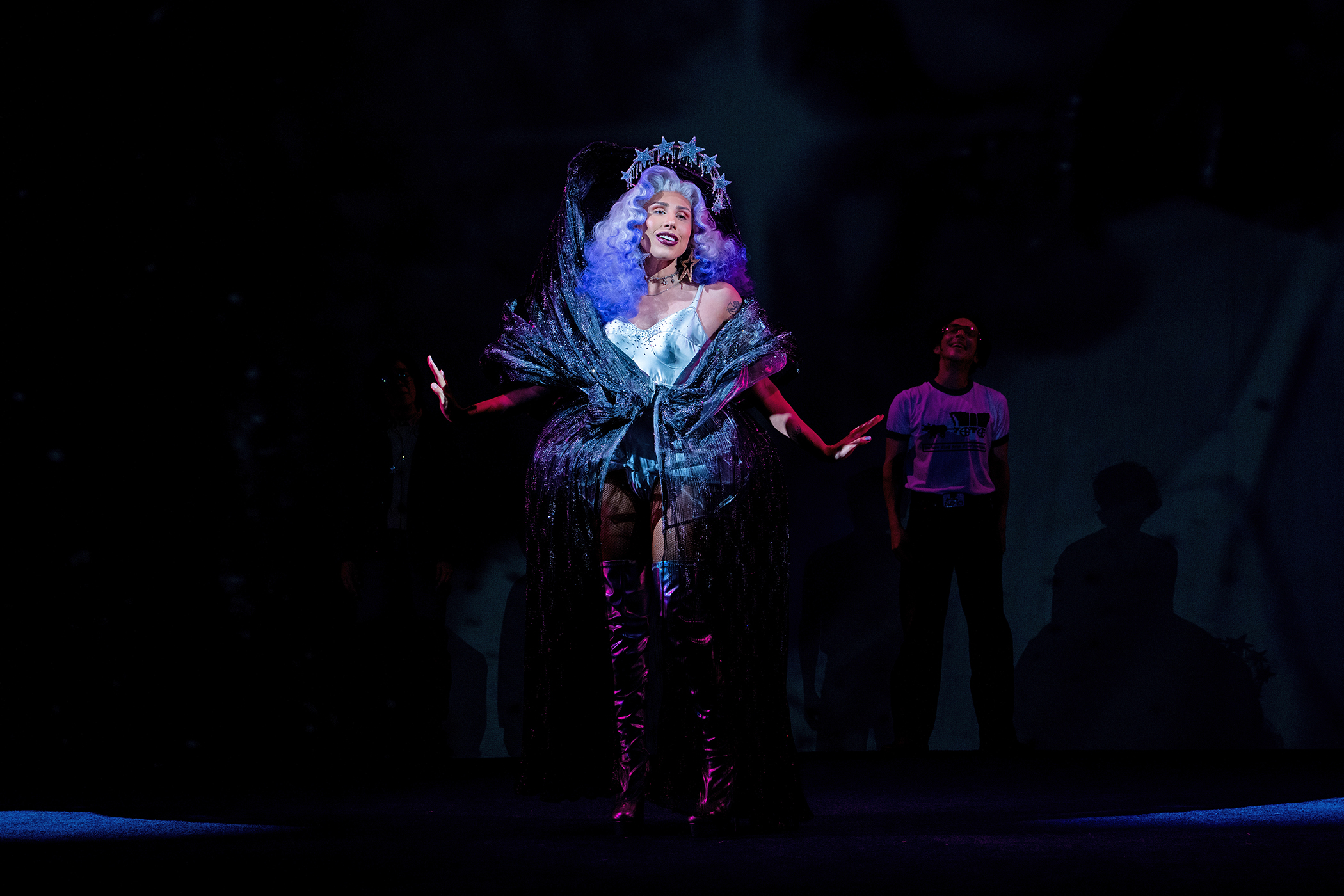
Costa Mesa’s South Coast Repertory Theatre hosted their opening night last weekend, bringing in a packed house.
There was an excited buzz in the air as the audience was seated to dance music from the disco to the present era, shiny stars and disco balls hanging from the ceiling, and club lights flooding the scene.
The audience was completely mixed, older and younger, fancy and casual, queer and straight, all in anticipation of this world premiere, from one of the most in-demand playwrights in the country, Keiko Green. Not more than three minutes after the lights dimmed, the audience realized this would be a show like no other.
In an explosion of reality and surrealism, the play is hard to label, much like the show’s non-binary main character and emcee for the evening, M.
The show centers around M and their journey of self-discovery, navigating through the modern world of tech and pollution, while dealing with the terminal illness of her father, M’s well-meaning mother trying to keep the family together and keeping her own grief at bay. It is a whirlwind of bigger-than-life characters and creatures, intimate moments and extreme pathos.
Using comedy as a main element, the play reels you into its real-but-not-real world, and the audience is easily transfixed by the story, through its extremely emotional and dizzying end.
Needless to say, you could hear a pin drop in the show’s final scenes, though sniffles could be heard and audience members wiping a tear or two away could be seen.
It is a comedy in disguise.
The show has a queer sensibility, especially manifested by the character of M, but it is not just a queer story. This play represents all of us and it is very fitting that the world is used as a metaphor for the proceedings.
Playwright Green masterfully uses laughter and grief as unifying themes. Laughter and grief are universal experiences that unify us all, regardless of sex, sexual orientation, class, race, or religion. The diverse audience at opening night was one entity by the end of the show.
The show comes at a time when we are thinking of the bigger picture, our place in the community, our place in the nation and our place in the world. Socially and politically, the world is a mess. And so is life. How you navigate it and find your place is how you survive. One moment at a time, one laugh at a time, one tear at a time.
South Coast Repertory will celebrate the queer community this coming Saturday on April 19th with a Pride Night performance.
Tickets include a pre-show event on the terrace, two complimentary glasses of wine, dessert and a live DJ. Meet a family (and a few friends) navigating love, loss, and climate change—with humor, heart, a little glitter and a touch of drag. A celebration of the beauty of the human spirit, even in the most unexpected moments.
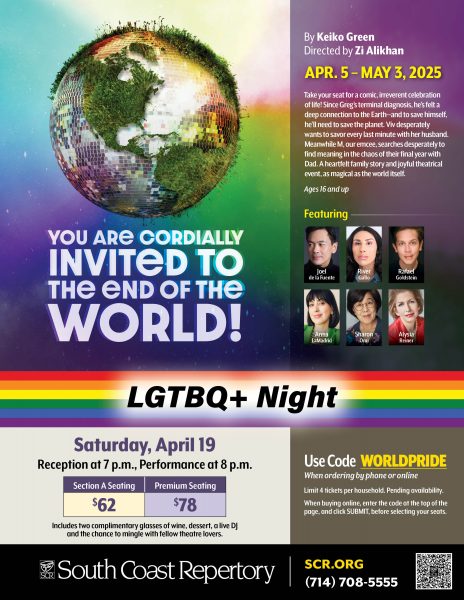
Get your tickets here, using discount code: WORLDPRIDE.
To win tickets through our ticket giveaway, enter here.
Arts & Entertainment
‘Bring it to Brunch’ returns to West Hollywood
Gird your loins! The long-running drag show is now back bigger and better for a residency at Rocco’s in WeHo
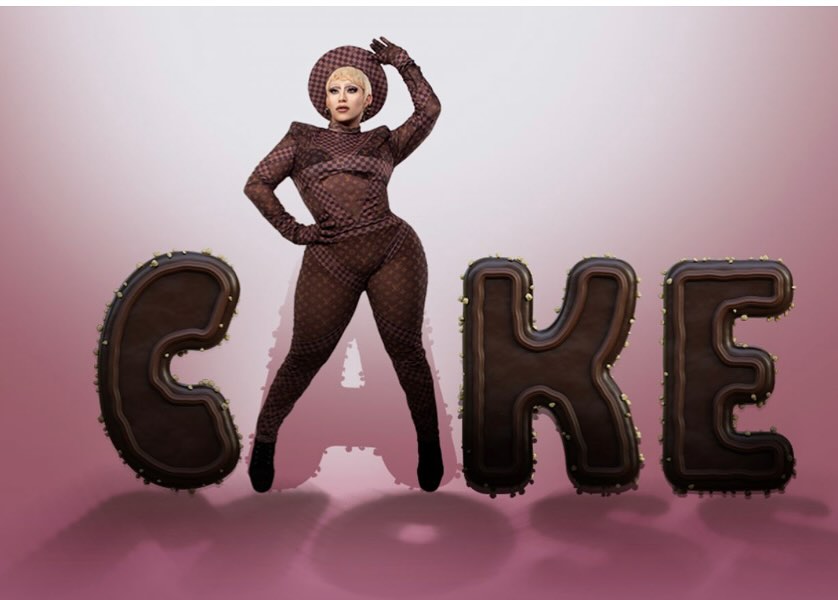
Bring it to Brunch, helmed by local drag maven Cake Moss, will make its return to West Hollywood at Rocco’s on April 19 at noon. The show has become a mainstay in the local queer community, starting at Flaming Saddles, then moving to Micky’s.
The show focuses on putting the spotlight on local talent and audiences continue to return as each show is filled with laughs and ‘lewks.’
Hailing from Cleveland, Moss has been serving it up with the drag community for over 14 years. She is a consummate performer and has hosted her own show on Outat.TV, released some sassy bops and performed around the nation.

Los Angeles Blade is a proud media sponsor of the show’s big return. See you there!
We chatted with Moss about her WeHo legacy, the return of Bring It To Brunch, queer nightlife and more!
How would you describe your drag?
I always have a hard time describing my drag. You’ll see through a show of mine. I always start out in a gown and huge hair, and the end of the show we are all shakin’ ass!
What do you love most about the queer club scene in West Hollywood?
What I love most about the queer scene in WeHo is just that—we have a whole neighborhood of queer spaces, for queer people of all walks of like! You can go watch sports, go to a dive bar, go to a big club, go be ‘bougie,’ or just live your best fantasy.
What sets Bring it to Brunch apart from other drag shows?
What I personally think sets my show apart is the casting process I have in place and the fact that I have a different cast every week!
Bring It To Brunch is getting a reboot at Rocco’s! What can audiences look forward to in the new venue?
I’m so excited and honored to get to my baby back at Rocco’s. The new owners and management are so supportive and excited it makes me even more lit to start! We are gonna have new drink options.
I changed the format a little bit, but it will still be doing what we usually did! Prize giveaways, sponsors and special celebrity guests! It’s always a gag at brunch!
What is most important to you in putting together each week’s cast?
Diversity! There are sooo many drag entertainers here in SoCal (I also book people from all around the world), so it’s important for me to give a stage to people that normally don’t have the chance to show their art off in West Hollywood.
Who is kicking off your first show at Rocco’s and what do you love most about this cast?
My [drag] sister Melissa BeFierce. She is always supportive of me and looking out for each other she’s been one of my longest friendships here in L.A! My [drag] daughter Jenna Talls is beautiful and also very supportive of me and our community. I have my [drag] sister Kyra Jete, she is the weekly host of Fierce Fridays at Rocco’s and is also one of the Rocc-ettes! So I thought, ‘why not show the crowd some house talent to show what Rocco’s has to offer entertainment-wise?’
And rounding off the cast is Thierry Miesel! She’s a very talented gem. We go way back and she is coming out of her hiatus. I wanted to show her that WeHo is still kickin’!
What are the biggest challenges facing local drag queens in this political and social climate?
I’d say forms here in Los Angeles we are very privileged to be in a place so open and accepting? I’d say that we need to use our voices to help support our fellow sisters in places where legislation is attacking them personally. All of our voices count and never forget that they can always be heard!
How can we best support our drag community?
Support is very easy. If you can come to the show and support, cheer and love—those are free. If you can’t come to the show, that’s OK. Share the flier in your story for a friend or tell a friend who also enjoys drag. Also free! But if you can, make it rain on a b-tch and buy some drinks.
What is your message to the Los Angeles LGBTQ community?
QUIT TEARING EACH OTHER DOWN.
We have to stick together more than ever now and it’s insane the little things people will fight and be hateful about. Save that energy for the administration. Being cordial is free.
Bring it to Brunch kicks off every Saturday, starting on April 19 at Rocco’s in West Hollywood. Doors open at 12:30 p.m.
a&e features
Peppermint thrives in the spotlight
In this exclusive interview, Peppermint talks about her latest work in activism and acting
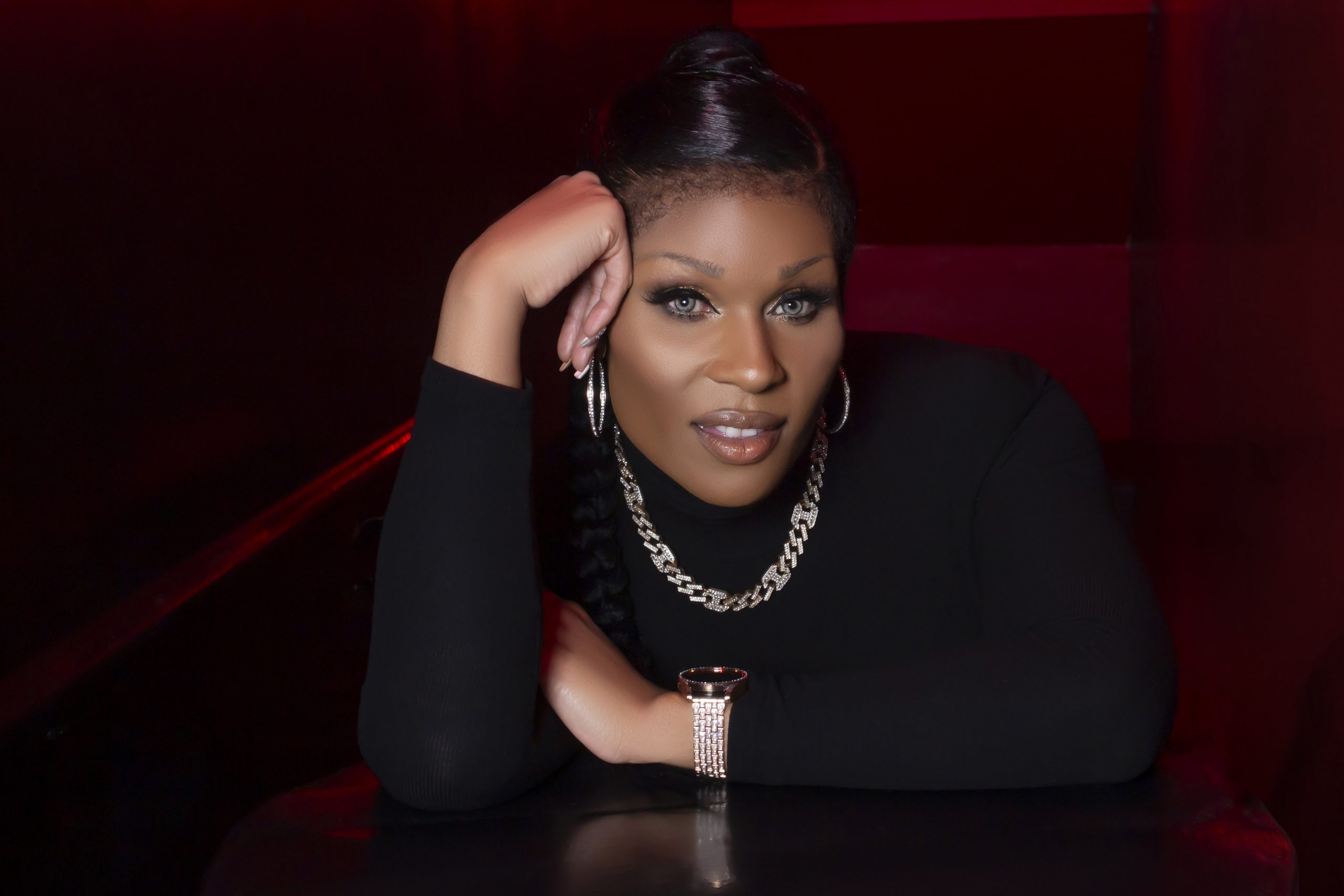
As an entertainer, there’s not much that Peppermint hasn’t done. She’s a singer, actor, songwriter, reality TV personality, drag queen, podcaster and the list goes on. Most importantly, as an activist she has been an invaluable role model for the trans, queer and Black communities.
She’s a trailblazer who boasts an impressive list of ‘firsts.’ She is the first out trans contestant to be cast on “RuPaul’s Drag Race” (Season 9). She is the first trans woman to originate a principal musical role for Broadway’s “Head Over Heels.” She was also the first trans woman to compete in the runaway hit series “Traitors,” on Peacock, and she is the ACLU’s first-ever Artist Ambassador for Trans Justice. Her accolades are a true testament of the courage it took for Peppermint to live her authentic self.
We caught up with Peppermint to chat about her activism, taking on bigger roles on screen, our current political and social climate and life beyond the lens. For Peppermint, coming out as trans was not just a moment of strength—it was a necessity.
“It unfolded exactly as I had imagined it in terms of just feeling good and secure about who I am. I was in so much pain and sort of misery and anguish because I wasn’t able to live as free as I wanted to and that I knew that other people do when they just wake up. They get dressed, they walk out the door and they live their lives. Being able to live as your authentic self without fear of being persecuted by other people or by the government is essential to being healthy,” Peppermint tells the Los Angeles Blade in an exclusive interview.
“I was not able to imagine any other life. I remember saying to myself, ‘If I can’t imagine a life where I’m out and free and feeling secure and confident and left alone, then I don’t even want to imagine any kind of a life in the future,'” says Peppermint.
Recently, Peppermint returned for season 2 of Netflix’s comedy “Survival of the Thickest.” She added some spice and kick to the first season in her role as a drag bar owner. This time around, her character moves center stage, as her engagement and wedding become a major plot line in the show. Her expanded role and high-profile trans representation come at just the right time.
“It’s the largest acting role I’ve ever had in a television show (which my acting degree thanks me). It feels right on time, in a day where they’re rolling back trans rights and wanting to reduce DEI and make sure that we are limited from encouraging companies, corporations, industries, and institutions from not only featuring us, but supporting us, or even talking about us, or even referencing us.
“It feels great to have something that we can offer up as resistance. You can try to moralize, but it’s tougher to legislate art. So it feels like this is right on time and I’m just really grateful that they gave me a chance and that they gave my character a chance to tell a greater story.
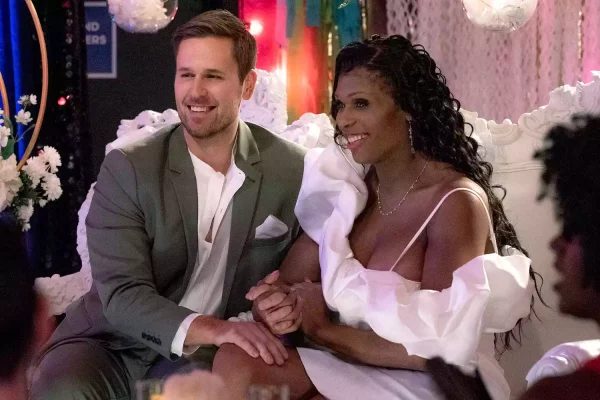
Dan Amboyer and Peppermint on ‘Survival of the Thickest’ Season 2.
(Photo credit Vanessa Clifton/Netflix)
Peppermint’s expanded role also accompanies a boom in queer representation in Black-powered media. Networks like BET and Starz and producers like Tyler Perry, are now regularly showcasing queer Black folks in main story lines. What does Peppermint think is fueling this increased inclusion?
“Queer folks are not new and queer Black folks are not new and Black folks know that. Every Black person knows at least one person who is queer. We are everywhere. We have not always been at the forefront in a lot of storytelling, that’s true, and that’s the part that’s new. It’s Hollywood taking us from the place where they usually have held us Black, queer folks in the makeup room, or as the prostitute, as an extra—not that there’s anything wrong with sex work or playing a background performer. I’ve played the best of the hookers! But those [roles] are very limiting.
“Hollywood has not historically done and still does not do a very good job of, including the voices of the stories that they make money [on]. And I think they’re realizing [the need] to be inclusive of our stories and our experiences, because for a long time it was just our stories without our actual experiences. It’s also exciting. It’s dramatic. It makes money. And they’re seeing that. So I think they’re just dipping their toes in. I think that they’re going to realize that balance means having us there in the room.”
Peppermint’s activism is tireless. She has raised over six figures for prominent LGBTQ rights groups, she continues to speak around the nation, appears regularly on major media outlets addressing trans and LGBTQ issues and has been honored by GLAAD, World of Wonder, OUT Magazine, Variety, Condé Nast and more—all while appearing on screen and onstage in a long list of credits.
Now, under the Trump Administration, she doesn’t have time to take a breath.
“I wouldn’t be able to do it if it weren’t second nature for me. Of course, there are ups and downs with being involved with any social issue or conversation and politics. But I am, for now, energized by it. It’s not like I’m energized by like, ‘Ooh, I just love this subject!’ right? It’s like, ‘Oh, we’re still being discriminated against, we gotta go and fight.’
“That’s just what it is. I get energy because I feel like we are quite literally fighting for our lives. I know that is hyperbole in some regards, but they are limiting access to things like housing, healthcare, job security and not having identification. Passport regulations are being put in a blender.”
Peppermint also mentions her thoughts on the unfair mandates to remove trans military members and revoke the rights and resources from the veterans who worked their whole lives to fight for this country.
“When you strip all these things away, it makes it really difficult for people to have a life and I know that that is what they’re doing. When I look around and see that that is what is at stake, I certainly feel like I’m fighting for my life. And that’s energizing.
“The only thing that would be the most rewarding besides waking up in a utopia and suddenly we’re all equal and we’re not discriminating against each other—which probably is not happening this year—is to be able to be involved in a project like this, where we can create that world. It’s also being built by people who are a part of that story in real life and care about it in real life.”
Peppermint is clear on her point that now is the time for all of the letters of the LGBTQ community to come together. Everyone who is trans and queer should be joining the fight against the issues that affect us all.
“Just trust us and understand that our experiences are tied together. That is how and why we are discriminated against in the way[s] that we are. The people who discriminate—just like how they can’t really distinguish between somebody who’s Dominican and somebody who’s African-American—you’re Black when you’re getting pulled over. We are discriminated against in much the same way. It’s the same with being trans or queer or gender non-conforming or bi, we all have our own experiences and they should be honored.
“When laws are being created to harm us, we need to band together, because none of y’all asses is gonna be able to stop them from getting rid of marriage equality—which is next. If you roll the tape back to three years ago when somebody was trying to ask me about drag queen bans on readings in school, I was saying they’re coming for trans rights, which comes for bodily autonomy and abortion rights, which comes for gay marriage rights. Those three things will be wiped out.
Peppermint doesn’t take a pause to get fired up and call gay folk out in their obligation to return the favor to the Black trans community.
She shares with us her final thoughts.
“You cis-gender homosexuals need to stand the f–k up and understand that we are standing in front of you. It’s very difficult to understand this and know this, but so many of the rights that we have were hard fought and won by protest and by people fighting very hard for them. And many of those people in every single instance from the suffrage movement, obviously Civil Rights, queer rights, the AIDS and HIV movement—Black queer people have been there the entire time. Trans people have always been a part of that story, including Stonewall. Yes, we are using different terminology. Yes, we have different lenses to view things through, but let me tell you, if you allow us to be sacrificed before you see us go off the side, you will realize that your foot is shackled to our left foot. So, you better stand the f–k up!”
Peppermint for President!
a&e features
Musical Mondays, a mainstay in WeHo nightlife, celebrates 16 years
MuMo will be honored by the City of West Hollywood for its dedication toward the arts
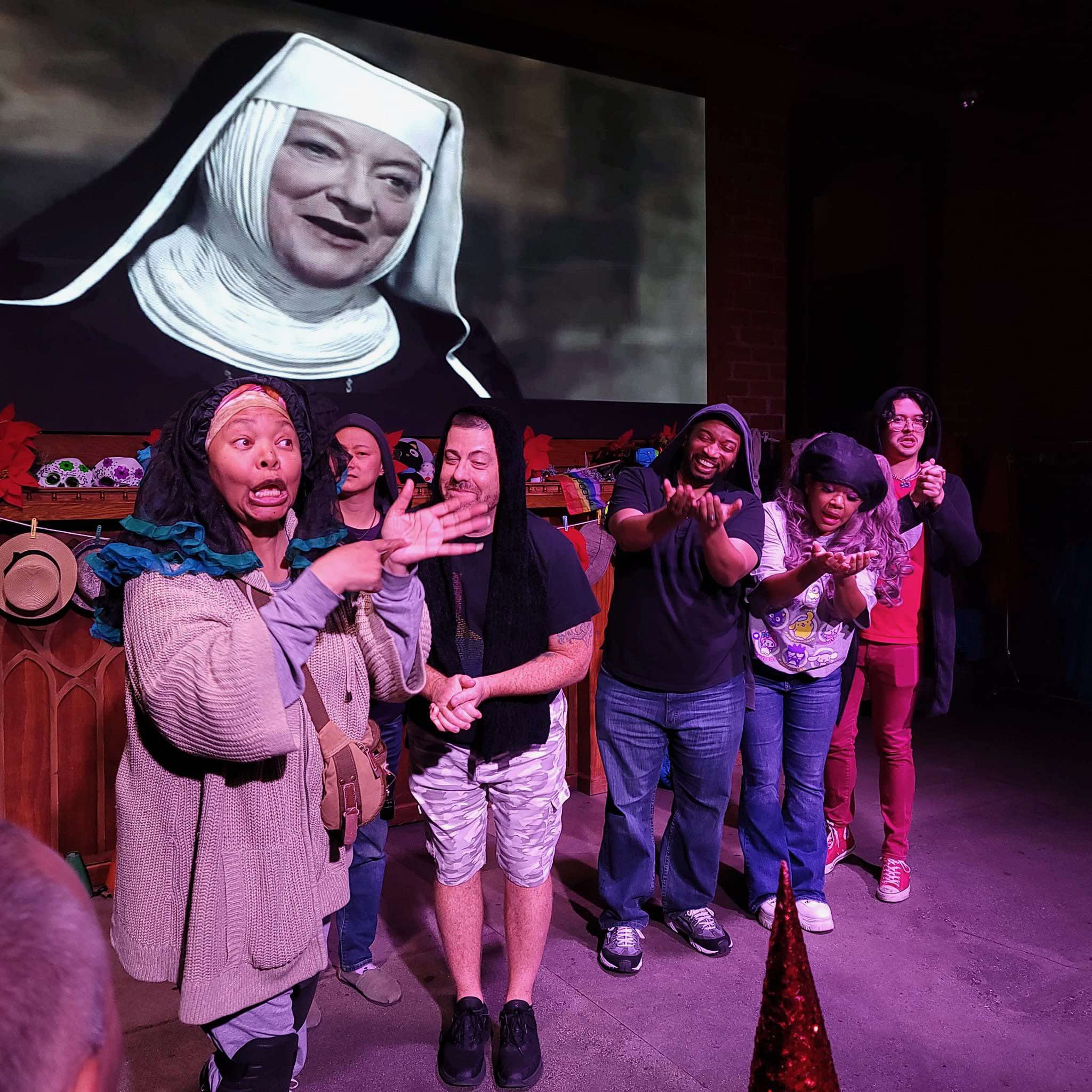
MuMo will be presented with a Proclamation from the City of West Hollywood for Service to the Community.
Nearly every Monday night for 16 years, throngs of musical theatre lovers, from the LGBTQ community and beyond, have gathered together to celebrate the arts and community. MuMo has become the ideal safe and creative space with a diverse crowd that reflects the Los Angeles community. Everyone is welcome as MuMo go-ers sing along to video clips from Broadway, movies and more, while some of the crowd get up and shadow cast what’s happening on the screen.
The evening, now residing at The Chapel at The Abbey, culminates in “The Live Spot,” featuring some of the best live performances L.A has to offer. Headliners change every week, ranging from cast members from Broadway national touring shows, to local theatre members, to names from the cabaret world. This is where theatre professionals come to play.
The energy and love in the air are electric and for many, this is the one night during the week that everyone can escape and shut out the trials of the outside world and immerse themselves in love, laughs, and musical magic. MuMo fans are fierce and loyal. As part of the “Your Name Under the Stars” initiative at The Hollywood Bowl, the crowd raised funds to have brass plaques put on three seats in section Q1. These plaques read “Musical Mondays Los Angeles”, “The Fans of MuMo,” and “And one for Mahler!”
Some of Broadway’s best–including a few Tony Award winners–have joined MuMo in the audience and on stage. Broadway legends like Neil Patrick Harris, Lin-Manuel Miranda, Billy Porter, Laura Benanti, Sutton Foster, Alex Newell, Valerie Pettiford, Obba Babatunde, Lillias White, Corbin Bleu, Matt Lucas, Megan Hilty, Jai Rodriguez, Terri White, Davis Gaines, Gedde Watanabe, Michael Feinstein, Bruce Vilanch and Blake Hammond have stopped by to enjoy the show.
On April 21st, MUMO will be presented with a Proclamation from the City of West Hollywood for Service to the Community, organized through the offices of Assemblymember Rick Chavez Zbur (AD-51) and WeHo City Council Member Danny Hang.
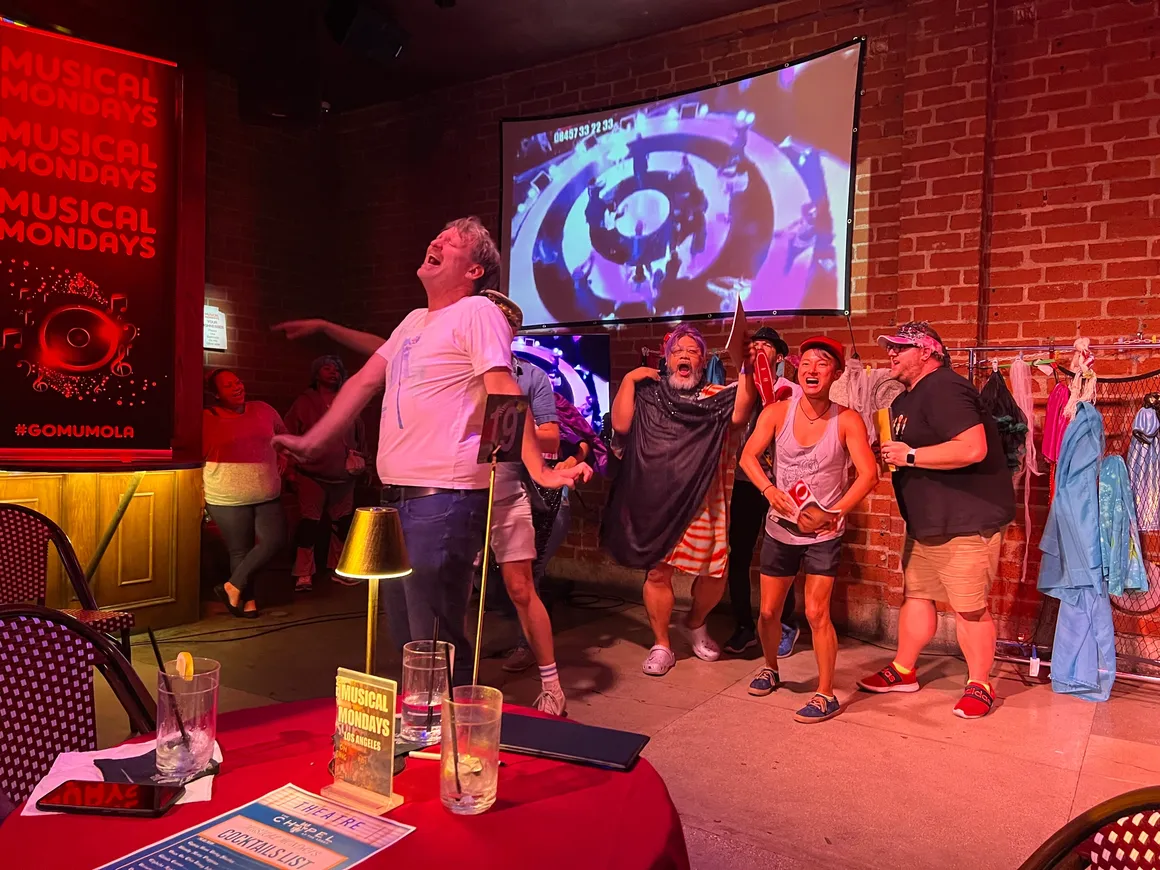
Photo credit MUMO
The masterminds behind MuMo are Ishka Maher, a long-time and fierce ally of the queer community and the evening’s emcee, Darin Sanone, a veteran in showbiz. The two of them make a veritable team as they continue their mission to provide a safe space for all to come and celebrate the arts. We caught up with them in anticipation of their big anniversary celebration.
Ishka Maher:
What was your inspiration for starting Musical Mondays?
We started Musical Mondays because there was simply a need for a theatrical musical event in WeHo. No one else was doing it or realized there was such an interest. What it’s grown into is very organic.
Musical Mondays has such a die-hard fan base that has been long-lasting. What makes the event so popular?
Our fan base has grown with the night. They grew with us. They are a part of who we’ve become.
What is it about musicals that brings everyone together?
Musicals are emotional magic. Unlike stories told on the screen, an audience watching a musical is encouraged to react and be a part of the action. It is emotional crowdsourcing.
What has been one of your favorite memories from Musical Mondays?
Every single week, there is a moment of joy when I get to witness a performer realize they’ve rocked it. Or the fans of MuMo have the audience howling with laughter. Or the bravery of a first-time singer. Or a group of friends meeting up in their favorite corner every week. These things bring me joy. Big events like our “Wicked” show nights, I’ll always remember.
What do you want audiences from Musical Mondays to walk away with the most?
When our audience walks away I want them to have felt like they’ve been a part of something special and unique. And to feel seen and welcomed into our goofy MuMo family.
What can we expect from Musical Mondays in the future?
I’m working constantly for our unique event to stay strong and be a part of the community. I know we have a strong fan base but I love it when celebrities and casts from touring shows hang out with us. I hope for more of that.
What do you love most about working in queer nightlife?
I’ve been working in the gay community of WeHo for 35 years. I feel blessed. It’s always dynamic, and you never know what to expect.
What is your message to Musical Mondays fans?
I want MuMo Fans to know that the night is strong in this space. We have the support of the Abbey and their amazing staff, and we plan to build on what we’ve been doing so successfully. It’s my favorite night of the week!
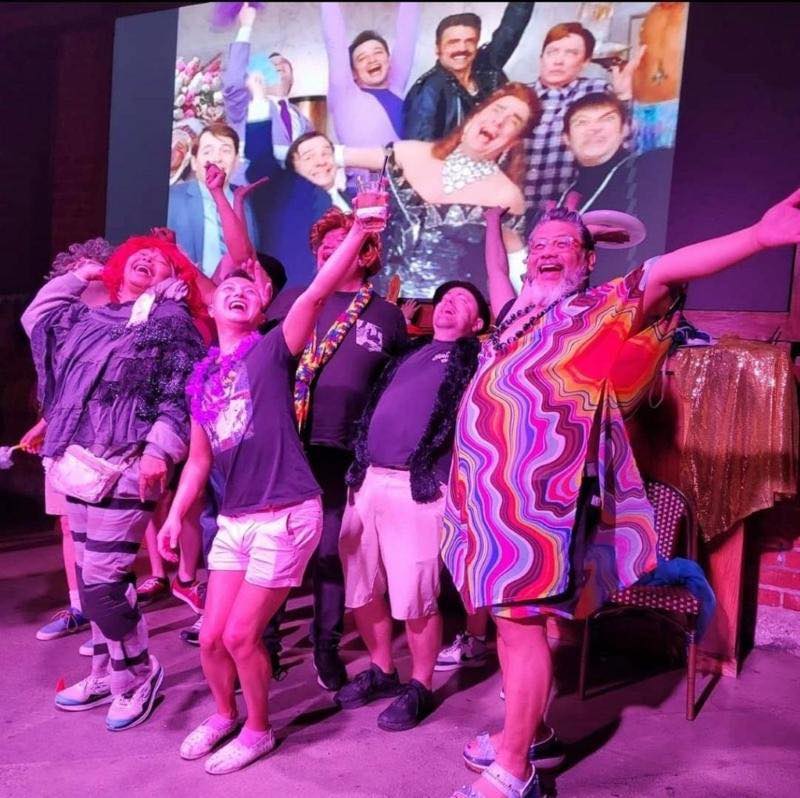
Photo credit MUMO
Darin Sanone:
You have been on stage and behind the scenes in Weho for quite a while. How has nightlife changed the most?
I have been on stage and behind the scenes in Weho for 26 years. Nightlife has changed tremendously. When I started in Weho in 1999 the vibe was definitely the circuit vibe. The Music was fast and hard and the party scene was fast and hard. Drugs were the norm and widely used. The bars were packed and people went out to meet potential dates or relationship candidates. Now people go out to dance or drink and leave dating and relationship searches to Apps on their phones. The music has changed, and so has the culture. Hip-hop is the preferred music of the people in clubs, and weed is the preferred substance to escape. People still drink alcohol, but they usually pregame at home or in their cars, and weed is much more popular than designer drugs or alcohol. Bar owners have to really work hard to get people into the clubs and then to get them to buy drinks. Without promoters and promotions, clubs cannot survive. Since Covid-19 almost every bar [and] nightclub in WeHo has changed ownership at least once. Some have changed owners twice and are well on their way to a third owner.
You are the emcee extraordinaire for Musical Mondays. What do you love most about doing this event week after week?
It is the highlight of my week!
The thing I love most about doing the Musical Mondays every week is the people! We get the best singers in L.A every week at Musical Mondays, both in the Live Spot Singer Showcase and after for Broadway Karaoke. It is the most accepting and supportive crowd in all of WeHo. Many people can feel intimidated by the West Hollywood crowd and scene. At Musical Mondays, everyone is welcomed and embraced. No one is made to feel less than. Almost every week, I am brought to tears by the singers who grace our stage. I have been a musical theater lover my entire life and have been performing musical productions since I was a very young child. The musical is the greatest contribution to the giant umbrella of music America has made. I love Musical Mondays and am grateful to be a part of the musical magic that happens at the Chapel every Monday night!
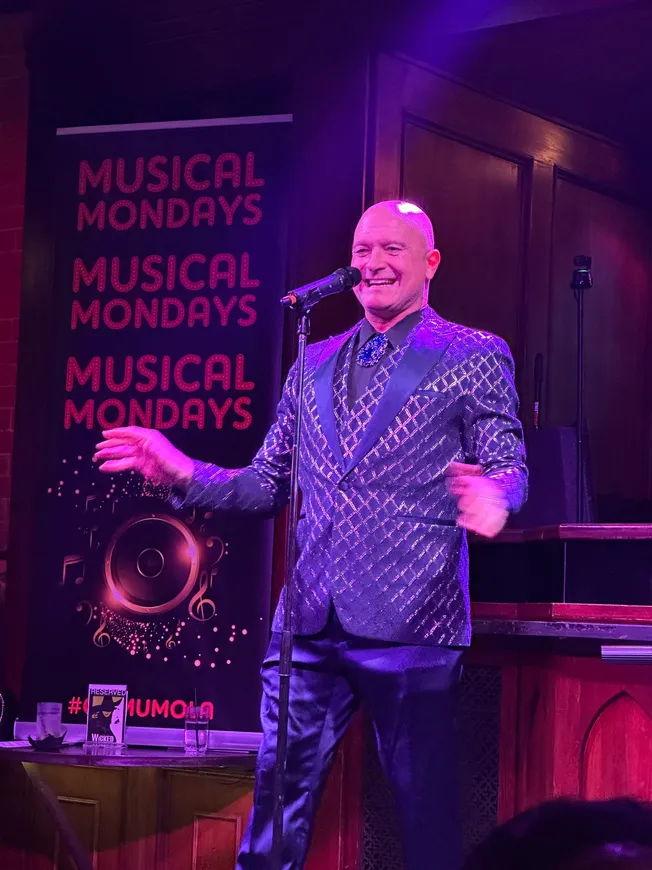
Photo credit Darin Sanone at MUMO
In your opinion, what makes Musical Mondays so popular in the community?
I believe what makes Musical Mondays so popular in Weho is a quadruple combination! This is our secret recipe! First, we have an amazing sound team. Keith Jacobson spins the best in Broadway and movie musical clips, and Greg Watkins is the best sound engineer in all of Weho! Greg makes every singer and musician sound phenomenal. I have had the pleasure of working with Greg on shows I have produced and hosted for 23 years. There is no one better in L.A! Our Second secret ingredient is the Fans of MuMo! The Fans of MuMo evolved organically back when Musical Mondays was at Club 11. The Fans, or as we sometimes call them, the “MuMo’s,” perform lip sync comedy routines to almost every video Keith plays. They are the most unique and talented crew of actors you will find in California, and they show up every week and pour their heart and soul into every Monday night. The third secret element to our success is the Live Spot, which is where I join the show. The Live Spot is a singer showcase with professional singers from L.A and the world. We have all of the best local musical productions showcasing their shows and many of the Broadway National Tours that pass through L.A! The caliber of singers [and] actors in our Live Spot is paralleled only by Broadway in New York City. The final ingredient to Musical Mondays’ success is the Broadway Karaoke segment. You never know who might show up for our Karaoke portion! We get professional Broadway and film actors, karaoke die-hards, influencers, drag superstars, beginning singers and a rainbow of beautiful souls! It is the most supportive community you will ever find at a karaoke event. Everyone shines!
Why is celebrating musicals so important right now?
Celebrating musicals is so important right now for many reasons. Most importantly is the fact that the LGBTQ community is under assault in America right now.
Secondly, musical theater embraces and celebrates diversity. It is 100% supportive of the LGBTQ community and of all races in our globe. As America moves back toward racism and homophobia, Broadway marches forward, spotlighting racial diversity and sexual identity inclusion. Music and the musical unite people in love through song and dance.
As a performer, how do you feel with politics getting so involved with the arts right now? How do we fight back?
Politics has always been so involved in the arts. The best music is political. The best theatre is political. Politics is what fuels much of the arts. The Beatles, U2, Marvin Gaye, Bob Marley, Bob Dylan, Nina Simone, Pink Floyd, Willie Nelson, Johnny Cash, Crosby Stills Nash and Young, Bruce Springsteen, Joan Baez, The Sex Pistols, Green Day, The Police, Madonna, and Lady Gaga are all famous because they were and are political.
ART IS POLITICAL! MUSIC IS POLITICAL IF IT’S GOOD! THEATER IS POLITICAL IF IT’S GOOD!
We fight back by voting, protesting, boycotting and most importantly by loving.
What do you love most about working in LA queer nightlife?
What I love most about working in WeHo nightlife is the beautiful colors of the rainbow. WeHo is for everyone, not just the LGBTQ community. West Hollywood has become much more like Europe in the last 25 years. The LGBTQ community now parties with the straight community. Nobody in the younger generations cares a bit what someone does in the bedroom. The youth of America don’t segregate themselves. The only way the LGBTQ community will survive in America during this dangerous time is if our straight friends stand up for us. We must allow our WeHo spaces to be safe for all of the rainbow. If WeHo doesn’t embrace everyone, especially our straight allies, the LGBTQ community will be in concentration camps wearing pink stars or worse. The greatest power is love. WeHo nightlife is ever evolving and as Darwin teaches us, survival happens for the most adaptable.
Adapt or perish!
Embrace all of the people. Musical Mondays is for everyone Gay, Straight. Bisexual, Trans, Black, White, Brown, and Pink! We are the Pink Pony Club–never forget that.
What is your message to Musical Mondays fans?
Thank you for supporting me, live performance and the greatest contribution of America to the genre of music–the Broadway Musical.
God bless WeHo! God Bless America! God bless Musical Mondays!
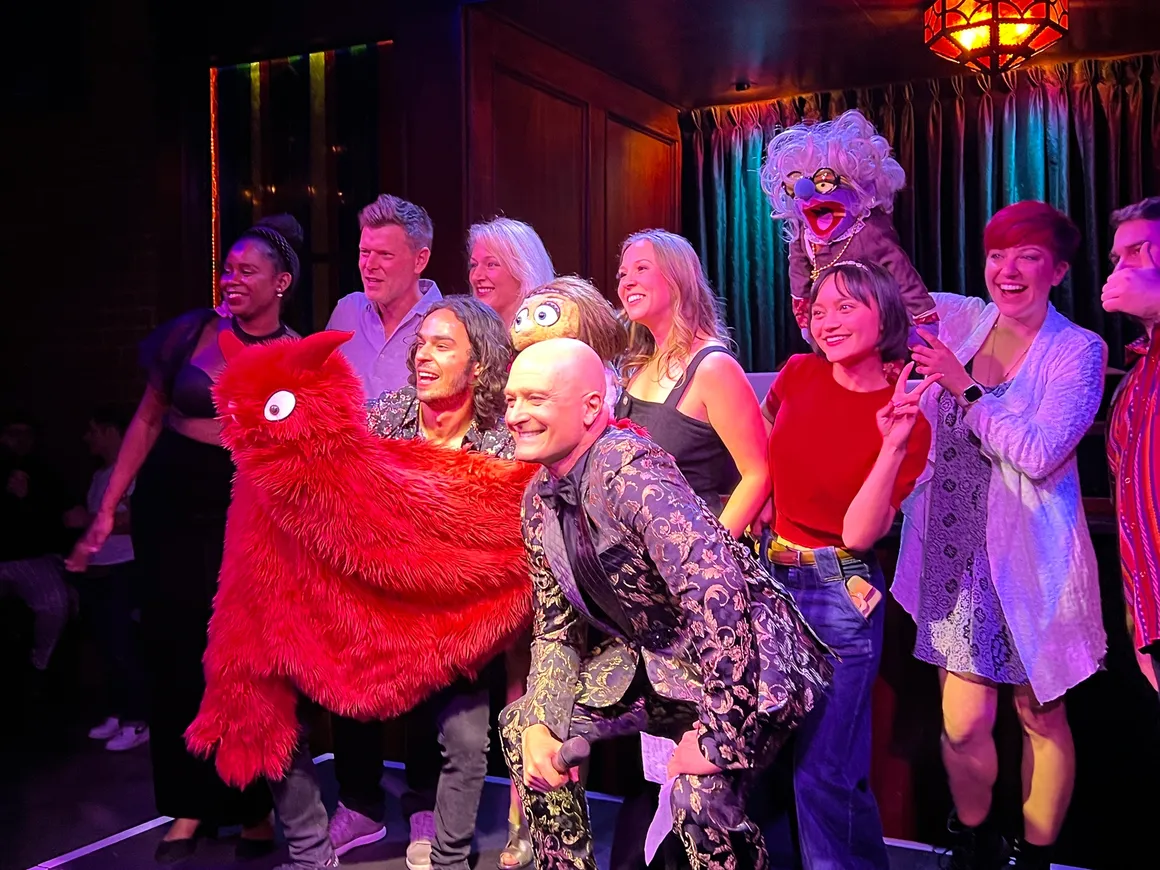
Photo courtesy of MUMO
For more information on MUMO, head to MuMoWeHo.com
Arts & Entertainment
LA Opera brings back Pride Night with a production of ‘Ainadamar’
Pride Night returns at the LA Opera

LA Opera is bringing back its Pride Night on Wednesday May 7, in partnership with the Opera League of Los Angeles.
LGBTQ members and allies will come together for Pride Night to indulge in a performance of “Ainadamar,” at the Dorothy Chandler Pavillion. The discounted tickets for Pride Night include access to a complimentary post-show party at Vespaio hosted by the Opera League of Los Angeles, featuring Cal-Italian bites from Chef Agostino Sciandri.
“Ainadamar” is a tribute to Spanish poet and queer icon, Federico García Lorca.
“This season, we celebrate with ‘Ainadamar,’ a powerful tribute to Spanish poet and queer icon Federico García Lorca. These pairings matter. They highlight that opera is a living, evolving art form—one that speaks to all people and reflects the diversity of the world we live in,” said Christopher Koelsch, president and CEO of LA Opera.
The central plot of “Ainadamar,” which is the Arabic meaning for ‘fountain of tears,’ follows Ana María Martínez as Margarita Xirgu, an actress who spent half of her career portraying Mariana Pineda, who was a 19th-century Spanish liberalist heroine, in Lorca’s play. Pineda was a political martyr who was executed for embroidering a flag with the slogan “Equality, Freedom and Law,” in protest of the absolutist Spanish regime.
The production, running at approximately one hour and 20 minutes, sets the stage with a throwback, recounting Lorca’s life and his last days in the Spanish Civil War.
“At the heart of our Pride Night celebration is the belief that everyone should feel seen onstage and off. Opera is a space for community and belonging, where our audiences can recognize themselves not only among fellow attendees, but also in our artists, our music and the stories we tell,” said Koelsch.
This major company premiere, led by resident conductor Lina Gonzáles-Granados, is sung in Spanish, with English and Spanish subtitles. Grammy-winning composer Osvaldo Golijov produces the dramatic, flamenco-inspired score that meets the poignant libretto by David Henry Hwang.
During the COVID-19 shutdowns, live performances at the LA Opera were put on hold and the journey to bring back Pride Night, among many other in-person performances, was a struggle filled with many moving parts.
“COVID-19 suspended live performances across the board and during our return season we were navigating the different timelines for audiences returning to live theater. It was very much a matter of listening to our community and learning what had changed for them as well as us: some opted for livestream options, others preferred only outdoor events, and so on,” said Koelsch. “Once we found our stride, we were excited to bring back Pride Night the following season during ‘The Marriage of Figaro.’”
This year the LA Opera is celebrating their 40th anniversary by launching their 40th Anniversary Campaign to raise resources needed to continue funding their organization.The show opens on Saturday, April 26 and runs through May 18. Purchase tickets by clicking here.
a&e features
No longer just a go-go dancer, Prince Joshua debuts ‘Crowned’ EP
This WeHo go-go dancer and socialite shares his life beyond the dancing box
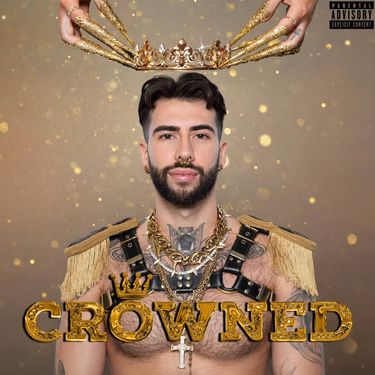
In this new “Meet Your Locals” column, we highlight the journey of a talented local dancer and emerging musical artist as part of Los Angeles Blade’s mission to get to know our community, we continue to do a deep dive into the personalities who make up the queer culture of Los Angeles.
Across queer bars along the West Coast, audiences and nightlife enthusiasts have come to appreciate Prince Joshua’s electrifying dance performances during his go-go sets. While renowned for his impressive dance skills, Prince took a career pivot last year by reintroducing himself as a musical artist with the release of “Coochie” by Baddie Gang.
In January of this year, Prince released his debut EP, “Crowned.” The project offers a deep dive into his personal experiences within nightlife culture, touching on themes such as navigating catcalling, dating, celebrating life and more.
We sat with Prince Joshua to get the exclusive insight on his new music.
Tell us your story of moving to LA:
I had always dreamed of moving to Hollywood and being on stages entertaining people. It’s amazing to fast-forward to living that exact lifestyle with dancing at bars like the world famous Abbey [bar] every weekend and entertaining my community as my job. Growing up in a small conservative town I never felt like the world was made for someone like me, the world I grew up in was made for heterosexual people who live ordinary lives. As I grew into the eccentric and charismatic homosexual that I am, I realized I needed to live somewhere where the things I was bullied for, would be celebrated. West Hollywood was made for people like me, people who dress up to express themselves, who aren’t afraid to be unapologetically themselves, and most importantly genuinely be who they are.
What do you love most about life in LA?
I love being surrounded by people with as much ambition and dreams as I have. There’s so much room in the sky for every star to shine and it makes me so excited when I hear that my friends are working on something new to achieve their goals and dreams. We’re all out here putting in hard work to make our art stand out and be seen, being around so much creativity and creatives helps push myself to chase my own dreams and hustle to achieve them.
Many people know you for your dancing, What got you into making music?
I’ve always had a love for poetry and have written songs and poems before, but my friend Tokeyo really pushed me into making music when he asked me to feature a verse on his song “Coochie.” I have such strong love for hip-hop and rap that once I learned the process of making my own verse, I wanted to continue making more. I began finding beats and writing songs which lead me to release my first EP with six songs and three music videos.
Who is your favorite artist?
None other than the queen of rap herself – Nicki Minaj. From her undisputed discography of hits, iconic visuals and unique delivery, she has inspired all of today’s current rappers from her use of voice animation, flow switching, metaphors and punch lines all in a perfectly constructed way.
Who is your favorite queer artist?
Kim Petras has been one of my favorite pop girls since 2018. When I heard heart to break I instantly loved the artist. “Turn Off The Light” projects volumes one and two are some of my favorite works of hers. Spooky horror inspired pop music & she’s queer – it can’t get any better than that!
What do you hope to accomplish with your music?
I hope to give anyone who listens to my music the confidence to unapologetically be themselves and bust a move. I want people to dance, be themselves and not be ashamed by doing so. I used to get insecure when others would hear what music I listened to or saw me dancing or singing along, but I’ve learned something that has really reshaped my thoughts on that; no one’s opinion matters but your own, if it brings you joy and doesn’t harm anyone in the process, then go for it!
What do you love most about performing in the queer LA nightlife?
I just love the energy and fashion from my community. Seeing the incredible outfits of each individual expressing themselves their way with their own aesthetic is such a beautiful sight. When people see how hard you hustle and how much work you put into your art it’s an amazing feeling to see a crowd sing along, dance, or even stand shocked at what I’m doing on the stage. Just like Lady Gaga’s iconic, “I Live For The Applause.”
What are some misconceptions people have performers in LA?
A lot of people mistake dancers for porn stars and while they both have some similarities, not every dancer is a porn star and vice versa. Coming from a cheer background I put so many elements into my dancing and rap performances, such as kicks, splits, toe touches, etc. It’s so much more work than just having a nice body. While I respect and appreciate what porn actors do, I wish people wouldn’t put go-go dancers and porn actors in the same categories as they usually do. We entertain in very different ways, both taking a lot of hard work, but still very different worlds.
What are your favorite places to perform and why?
I love performing for music festivals. OutLoud’s WeHo Pride is one of my favorite events where I’ve not only had the opportunity to go-go dance but also perform my own music on stage. Seeing so many people in the crowd, being part of a sickening line up and getting to go all out in my ‘Princely’ way brings me a feeling of accomplishment and adrenaline like none other.
SUMMERTRAMP is another queer festival I’ve had the chance to perform at which I’m so grateful for. Every time I get to share my music to my community if I inspire just one person in the crowd to smile, dance, or embrace their inner selves then I know I’ve done my job.
How does being queer inform your music?
As I’ve stated before, this world was made for heterosexual, ordinary people. My music is made to take you out of that pouring world and into my eccentric queer and royal fantasy. Not many queer people can relate to the regular top 40 songs because they are all from a heterosexual lens. With my music, I hope that people can relate to my experiences or at least my experience as a queer person and be able to embrace their sexuality by giving them music that is made for them.
How do you balance your personal life with your professional life?
When you are chasing a dream while hustling as an entertainer your entire life is consumed with said dream. In my free time I am often stretching, working out, writing new music, or planning my next music video or photo shoot. My passion is my job so I never feel like my personal life is suffering when I’m consumed with working on what I love to do, but making sure I give myself time to rest and recharge is a vital key to ensuring I don’t burn out. I try to always give myself one day a week where I don’t focus on work or projects and allow myself to rest and recharge.
Any advice to people who want to start making music or dancing?
Just go for it! You’re always gonna be your own worst critic, but at the end of the day, you will see so much growth when you just allow yourself to put out the art that you’ve created and continue making new art. Find a support group that can help you level up whatever it is. You’re passionate about and continue pushing yourself to be better than you were the day before.
What’s next for your music career?
Right now im working on my next EP and I’m so thrilled because I know it’s better than my first. Being able to see my own growth inspires me so much to keep creating. You can also expect some collaborations with other up and coming queer artists!
What message do you have for the queer community?
Every day you wake up, you have the chance to genuinely be yourself and encourage others to do the same. While there’s so much in this world working against us, there are so many of us in the community to lean on and look for support when you feel alone. Be unapologetically yourself, stand strong with your friends and family within the community and take up as much space as you can by using your voice, sharing your art and being yourself.
To keep up with Prince, follow him on Instagram.
Rose Montoya is a renowned, award-winning, Trans, Latina, writer, advocate, educator, model, actor and viral content creator.
-

 National5 days ago
National5 days agoDiscredited former cop played ‘key role’ in deportation of gay make-up artist
-

 Arts & Entertainment4 days ago
Arts & Entertainment4 days agoA Night of legacy, love, and liberation: Inside the 2025 April Fool’s Ball
-

 Movies3 days ago
Movies3 days agoHeartfelt ‘Wedding Banquet’ remake a romcom worth seeing
-

 Arts & Entertainment4 days ago
Arts & Entertainment4 days agoSouth Coast Repertory Theatre hosting world premiere production
-

 Brazil3 days ago
Brazil3 days agoUS lists transgender Brazilian congresswoman’s gender as ‘male’ on visa
-

 opinions2 days ago
opinions2 days agoOver 36,000 Angelenos unite for ‘Fighting the Oligarchy’ rally
-

 Congress2 days ago
Congress2 days agoEXCLUSIVE: Garcia demands answers on deportation of gay Venezuelan asylum seeker
-
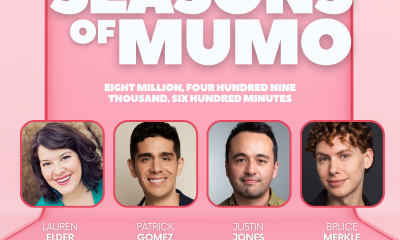
 Theater2 days ago
Theater2 days ago‘The Broadway Cage Match’ ready to rumble at WeHo’s Musical Mondays
-

 Books1 day ago
Books1 day ago‘Pronoun Trouble’ reminds us that punctuation matters
-

 Features2 days ago
Features2 days agoNew mayor Chelsea Byers, hopes to make WeHo a model city for others to follow

